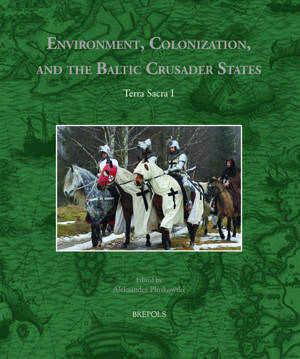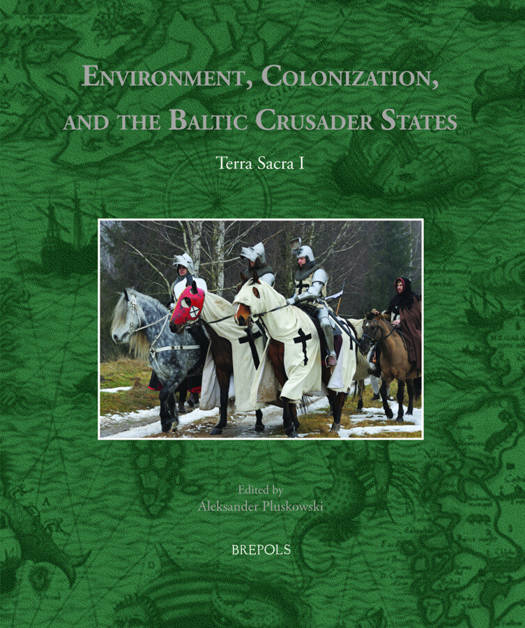
En raison d'une grêve chez bpost, votre commande pourrait être retardée. Vous avez besoin d’un livre rapidement ? Nos magasins vous accueillent à bras ouverts !
- Retrait gratuit dans votre magasin Club
- 7.000.000 titres dans notre catalogue
- Payer en toute sécurité
- Toujours un magasin près de chez vous
En raison de la grêve chez bpost, votre commande pourrait être retardée. Vous avez besoin d’un livre rapidement ? Nos magasins vous accueillent à bras ouverts !
- Retrait gratuit dans votre magasin Club
- 7.000.0000 titres dans notre catalogue
- Payer en toute sécurité
- Toujours un magasin près de chez vous
Environment, Colonisation, and the Baltic Crusader States
Terra Sacra I
Aleksander Pluskowski
Livre broché | Anglais
132,50 €
+ 265 points
Description
In the thirteenth century, crusading armies unleashed a relentless holy war against the pagan tribal groups of the Eastern Baltic, whose territories were conquered and reorganized into Christian states run by the Teutonic Order, bishops, and their cathedral chapters. Castles were built, towns established, and colonists encouraged to settle under the leadership of the new Christian theocracy. But the changes introduced alongside Christianity not only transformed the culture of eastern Baltic societies, but also had a profound and--for the Baltic tribes, who saw many aspects of the natural world as sacred--deeply significant impact on the local environment. This seminal period in the environmental history of north-eastern Europe has been the focus of the ERC-funded research programme, 'The Ecology of Crusading', which explored the physical and conceptual ecological transformations associated with warfare, colonization, and religious conversion. This is the first of two Terra Sacra volumes, which share the aim of changing our understanding of the environmental impact of crusading and colonization in northeastern Europe. The present volume provides a detailed inter-disciplinary comparison of the environmental transformations associated with the emergence of the crusader states of Livonia and Prussia. It draws on and integrates a range of archaeological, paleoenvironmental, historical, and cartographic sources in order to highlight the diverse impact of colonization and landscape reorganization that followed in the wake of the Baltic Crusades. The companion Terra Sacra volume complements this survey by presenting a number of case studies from across the eastern Baltic region.
Spécifications
Parties prenantes
- Auteur(s) :
- Editeur:
Contenu
- Nombre de pages :
- 548
- Langue:
- Anglais
Caractéristiques
- EAN:
- 9782503551326
- Date de parution :
- 30-05-19
- Format:
- Livre broché
- Format numérique:
- Trade paperback (VS)
- Dimensions :
- 213 mm x 279 mm
- Poids :
- 1995 g

Les avis
Nous publions uniquement les avis qui respectent les conditions requises. Consultez nos conditions pour les avis.






